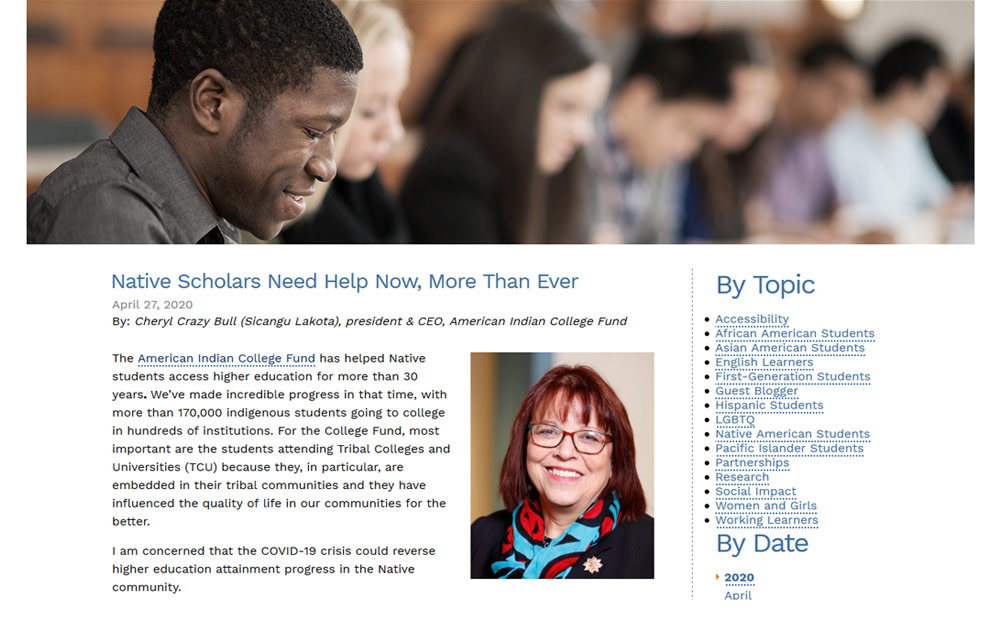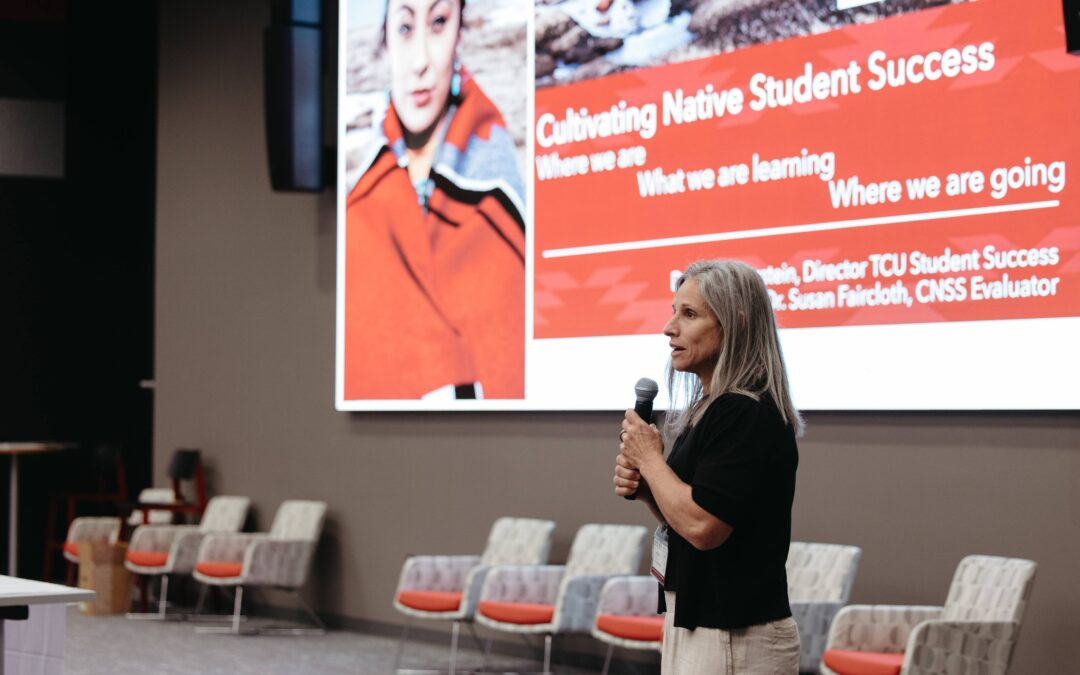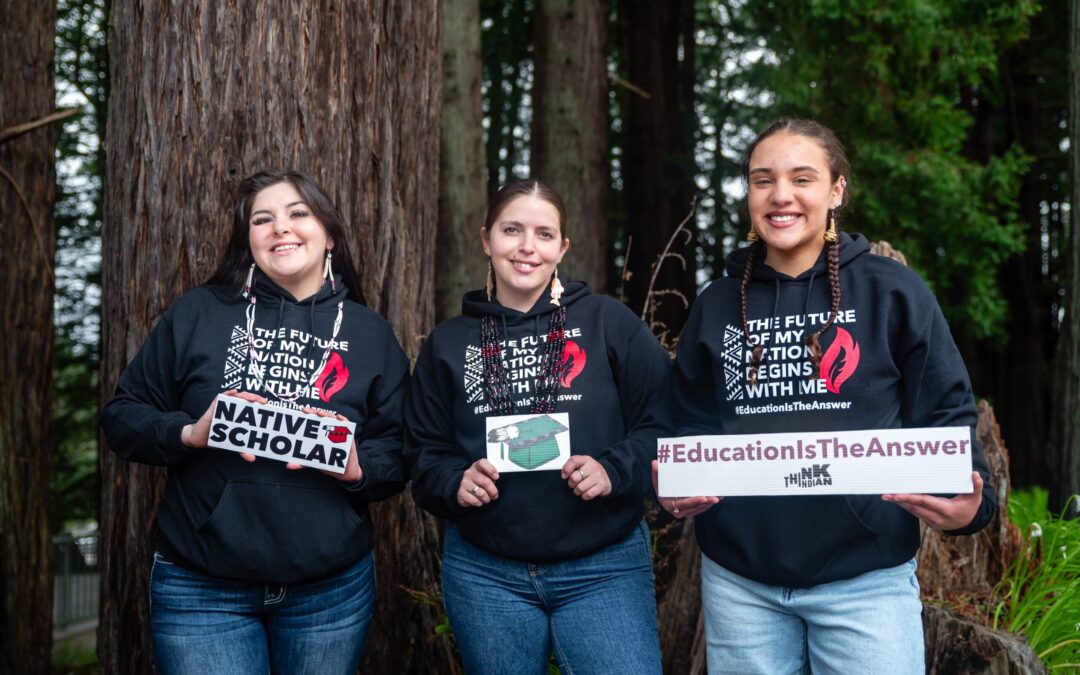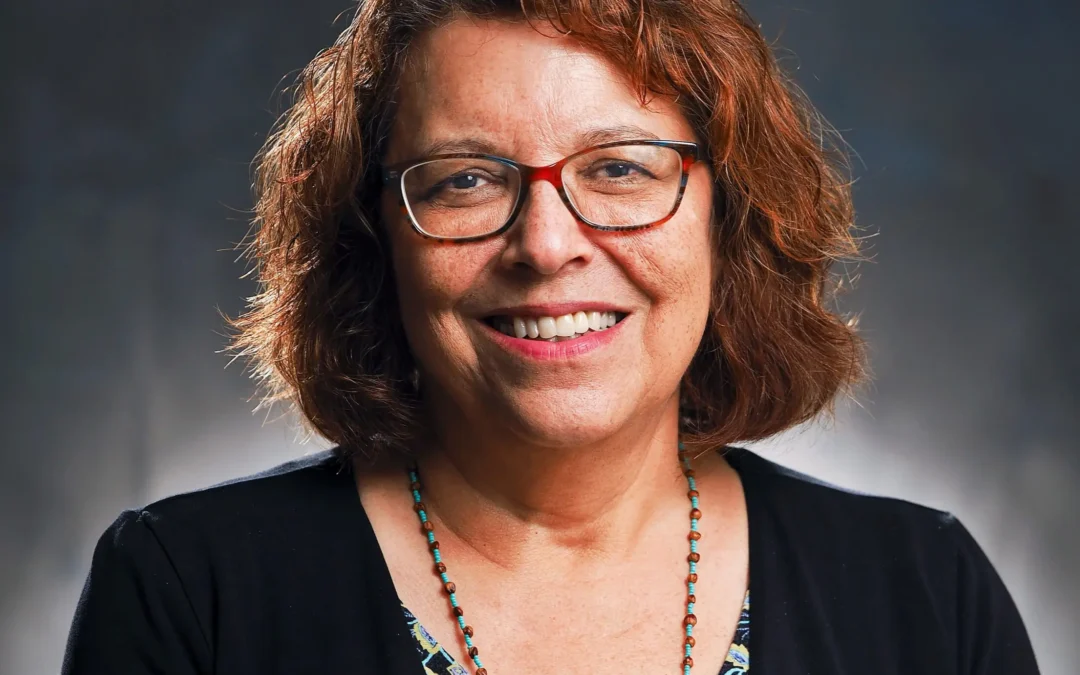The American Indian College Fund has helped Native students access higher education for more than 30 years. We’ve made incredible progress in that time, with more than 170,000 indigenous students going to college in hundreds of institutions. For the College Fund, most important are the students attending Tribal Colleges and Universities (TCU) because they, in particular, are embedded in their tribal communities and they have influenced the quality of life in our communities for the better.
I am concerned that the COVID-19 crisis could reverse higher education attainment progress in the Native community.
Prior to the COVID-19 crisis, the rate of college degree attainment for American Indians and Alaska Natives (AIAN) was less than half of that of other groups, at 14.3% of AIAN 25 years and over with a bachelor’s degree or higher. This was less than half than the rate of degree attainment of other groups, at 30.9% of the overall population. [1] Yet as low as that figure seems to be, college attainment among Native people has doubled over the past 30 years.
At the College Fund, we know we need to do more to support Native scholars during this pandemic. Unlike other college students, AIAN students faced far greater challenges in greater numbers before the crisis. An issue as severe as the COVID-19 virus can derail their educations permanently.
We also know that college graduates and certified workers are needed to create not only better lives for themselves, but to support sustainable Native communities. Over 40% of our current scholarship recipients major in health or STEM related fields demonstrating both the interest in health and the opportunity for skilled workers
Online learning isn’t as effective of a solution for our students because unlike other higher education institutions many TCUs are located in low-income reservation areas, far from sufficient broadband, wi-fi or other technologies that facilitate online learning. Although all of the TCUs the College Fund supports have transitioned to distance learning, we are acutely aware of the inadequate infrastructure and resources needed for that transition to be successful.
Even with broadband, 35% of American Indians don’t have access to Internet[2], compared to 8% of Americans nationwide. Twenty percent of Native students said they do not have computers and reliable internet access at home to be able to access coursework online[3]. In addition, most TCU faculty members live in the communities where they teach, likewise making it difficult for them to teach from home, while many are not familiar with distance learning tools due to lack of technology access.
For those reservation areas that have Internet access, the Internet is often lower-quality and more expensive[4], causing lag times with courses and drop-offs during class.
Lack of technology access compounds the distance learning solution when combined with crowded home environments frequently found in Native communities, where it is traditional (and often economically necessary) for multiple generations to live together.
Some TCU communities have set up temporary Internet access hotspots on campus, and likewise have shifted many classes to online instruction, while also working to ensure that students without technology can access solutions such as course instruction packets for delivery and pick-up. Course packets are particularly important for cultural programming unsuitable for online instruction, however, even so, much of the nuance of cultural and language classes (as well as studio and laboratory classes, research, and more) is still lost without that face-to-face setting.
In addition, Native students have higher rates of food and housing insecurity. Before the COVID-19 pandemic, College Fund data showed that more than 50% of the Native students we support work and are the primary source of income for their families (not just themselves). Now, as businesses on tribal lands are shuttering and with tribal borders closing and stay-at-home orders, students with non-essential jobs who pay for household essentials like food, gas, electricity, will find themselves having to make tough decisions about staying in school.
And even though 50% of TCU students held jobs before the crisis, we know that TCU students were living on thin margins. In a 2019 survey of TCU students at seven institutions, 62% reported being hungry or food insecure in the past year and 69% reported being housing insecure.[5]
TCUs are community-based institutions that serve as the centers of their communities, offering much more than a higher education. With their temporary closure, students who need their services will miss out on free or affordable food, housing, health services, nutrition classes, new-mother/well-baby classes, exercise programs, computer labs, and more—leaving a vacuum in students’ lives that cannot be replaced.
Finally, the culturally immersive education that TCUs offer, including language, culture, traditions, and spiritual practice instruction, have proven to be grounding and healing environments allowing Native students thrive.[6] TCU graduates (43%) are more than twice as likely as American Indian/Alaska Native graduates of non-TCUs (21%) and college graduates nationally (18%) to say they received support in college, including having a professor who cared about them as a person, having a professor who made them excited about learning, and having a mentor who encouraged them to pursue their goals and dreams. TCU graduates also reported nearly twice as much as graduates nationwide that they are thriving financially, socially, and in their communities and careers. Students who live in communities that have historically been impacted by generations of trauma will not have the on-campus support that has underpinned their wellness at this difficult time.
As noted, the College Fund is stepping in to ensure students are financially and emotionally supported to continue the progress made in educational attainment and economic sustainability in Native communities. We need to keep Native students in college this semester and beyond so that they finish their educations. We need them to continue to assume their rightful place as the leaders of tomorrow, building strong, resilient, and proud Native nations.
To meet this goal, the College Fund has created the American Indian College Fund Emergency Relief Fund. We are working with our supporters to build this extraordinary fund to get our students through these extraordinary times, to provide anything our students need to stay in school and complete their educations to achieve our goal of creating successful Native individuals, families and communities. Anything means laptops and other tech tools, food, housing and utility support, money for medicines, health care, and baby supplies, medicines, transportation, and—well, anything. In addition, the College Fund is lending its support through programs and outreach to students, faculty and staff to ascertain their needs, to be sure they feel valued and supported, and to give them a place to voice their concerns.
This is new to all of us, and as we move forward with our planning to keep Native scholars in college, we appreciate hearing and learning what others are doing and ways that we can work together to protect and facilitate the education of our next generations of leaders.











